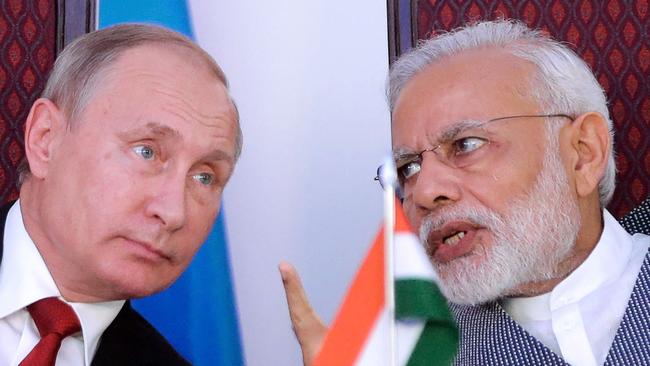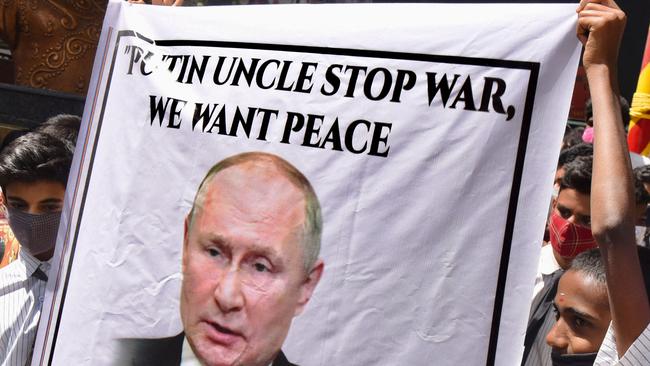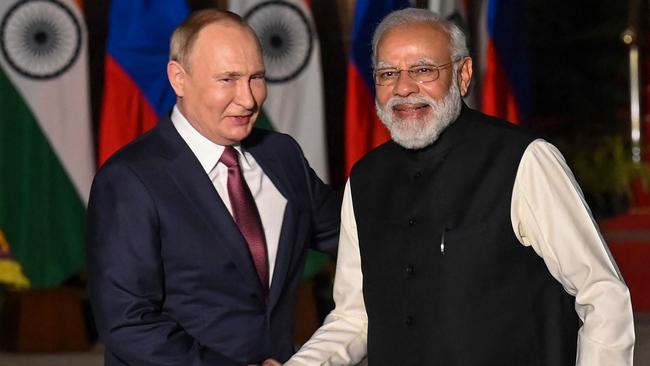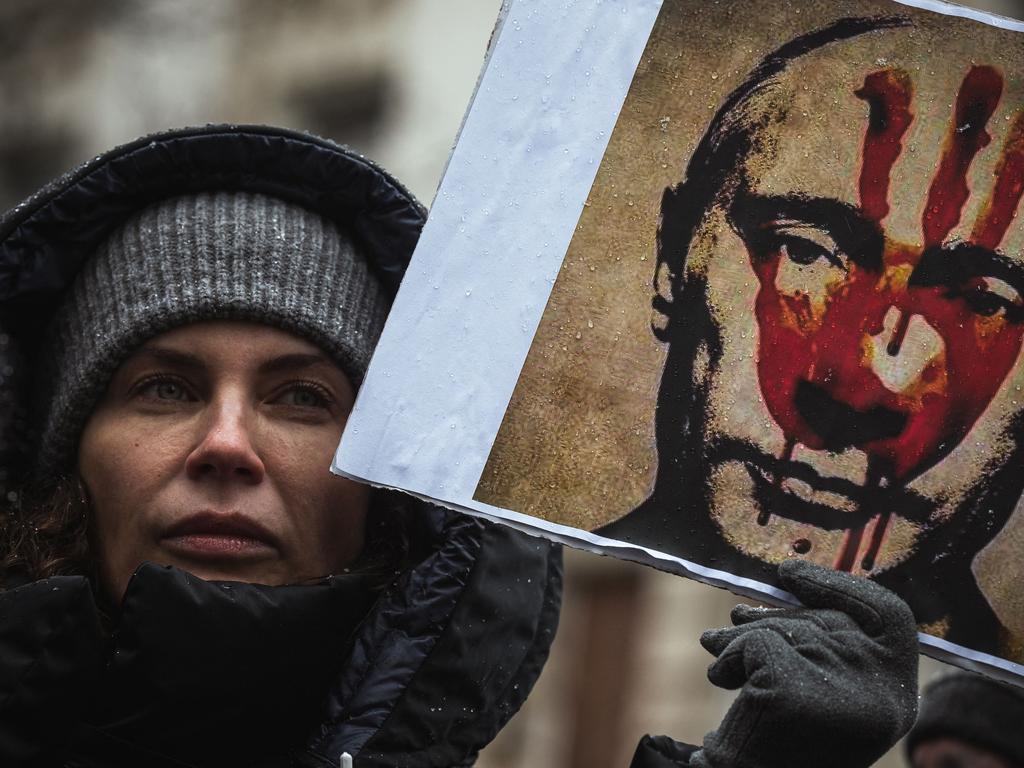
Along with a small minority of largely authoritarian nations, India conspicuously, twice abstained from condemning Russia at a series of United Nations votes last week.
President convened an awkward snap meeting of the Quad, that freedom loving quartet of nations, including Australia, drawn together to counterbalance China’s growing power.
Prime Minister Narendra Modi of India stood with Scott Morrison, Joe Biden and the Japanese prime minister at the White House only last September, to declare a collective commitment to “promoting the free, open, rules-based order, rooted in international law and undaunted by coercion”.
“The US has made its peace with India’s decision, but they are not enthusiastic about it,” says Mumbai-born Ashley Tellis, a former senior adviser to the Bush administration on Indian issues.
Why India tolerates the violence
What possessed this cricket-mad nation to tolerate Russia’s shocking violence in Ukraine? A mix of cold, geopolitical calculus, gratitude to Russia, resentment of the US, and fear of China.
When the world started exhorting Russia to send its troops back to their barracks in December last year, Indian prime Minister Narendra Modi was welcoming Vladimir Putin to Delhi, praising Russia’s “constant friendship”.
Putin, who didn’t bother going in person to the G20 or the Glasgow climate summit, declared Russia worked with no other nation so closely.
“It’s a deep relationship that goes back to the 1960s, really became solidifying in the 80s during the height of cold war,” Lisa Curtis, a senior analyst at the Centre for New American Security in Washington, tells The Australian.

Still poor, India was a lot poorer when it was finding its feet in the decades after World War II; and Russian military equipment was cheap and effective.
“At first India and Russia bartered to avoid spending hard currency. Indians gave things like textiles to Russia, and it got military hardware in return,” Husain Haqqani, former Pakistani ambassador to the US, tells The Australian.
“Americans don’t want friends like India to buy from Russia, but they are not able to sell to India for a good price”.
Vital dollars, and threat of China
Decades on, the single largest buyer of Russian military equipment is India, which can’t afford arguments with its main military supplier and technician when China looms as a massive and growing threat.
“The threat is real for India, each side now has about 50,000 troops on the border, and of course India wants Russia’s support in any dispute,” Curtis says.
Fighting has broken out frequently since 2020, killing dozens of Indian soldiers, as the two most populous nations size each other up along their massive 3,488km shared border.
“We are so near that if ever you call us from the mountain tops we will appear at your side,” soviet leader Nikita Khrushchev declared in 1955, when Russia became the first great power to endorse India’s position on Kashmir, a disputed territory with Pakistan
“Russia was the first great power to endorse India’s position and it’s never resiled from that,” says Tellis.
The Soviet Union helped India in its war with Bangladesh in the early 1970s too, signing an Indo-Soviet Treaty of Friendship and Co-operation in 1971.
India, ruled by a series of ‘socialist’ prime ministers, had few friends in Europe or the US.
“Americans want to talk about the Indian Ocean, never about the land border between India and Pakistan,” Haqqani, now a senior fellow at the Hudson Institute in Washington, adds.
Indeed, India long resented US support for Pakistan, which turned American-provided military equipment on India in their 1965 war after promising Washington to only use its technology against communist foes.

“Whataboutism was invented on the subcontinent,” Haqqani, suggesting India might be irritated it had been dragged over the coals for failing to condemn Russia, but not Pakistan, which also abstained.
Its prime minister Imran Khan was even in Moscow to see Putin the day Russia invaded Ukraine.
Worrying relationship
Russia’s growing relationship with China, which also sells arms to Pakistan, worries India. “It’s doing its best to try to prevent Russia and China becoming closer,” Tellis, now a senior fellow at the Carnegie Endowment for International Peace, tells The Australian.
Increasingly dependent on China for technology and access to the outside world, Moscow, needs Beijing more than Delhi.
For now, India has little choice but to keep forking out for MIGs and endure the opprobrium that comes with turning a blind eye to Putin’s war on Ukraine. Its territorial integrity matters more than lofty ideals about a rules based order.
Longer term, the US might consider helping wean India off Russia military technology, or at least encourage it to buy some French submarines instead.
Shorter-term, it might refrain from slapping economic sanctions on India, which, remarkably, the White House is considering after India took delivery recently of a Russian S-400 missile defence system.
A 2014 US law to punish Russia for invading Crimea permits the US to impose sanctions on any nation for buying Russian weapons, as Turkey recently learned the hard way.
Relations between the world’s two largest democracies could get worse before they get better.








The free nations of the world have draped themselves in the yellow and blue of Ukraine’s flag, in solidarity with the beleaguered European nation as it suffers relentless Russian bombardment, with one very notable exception: India, the world’s biggest democracy.